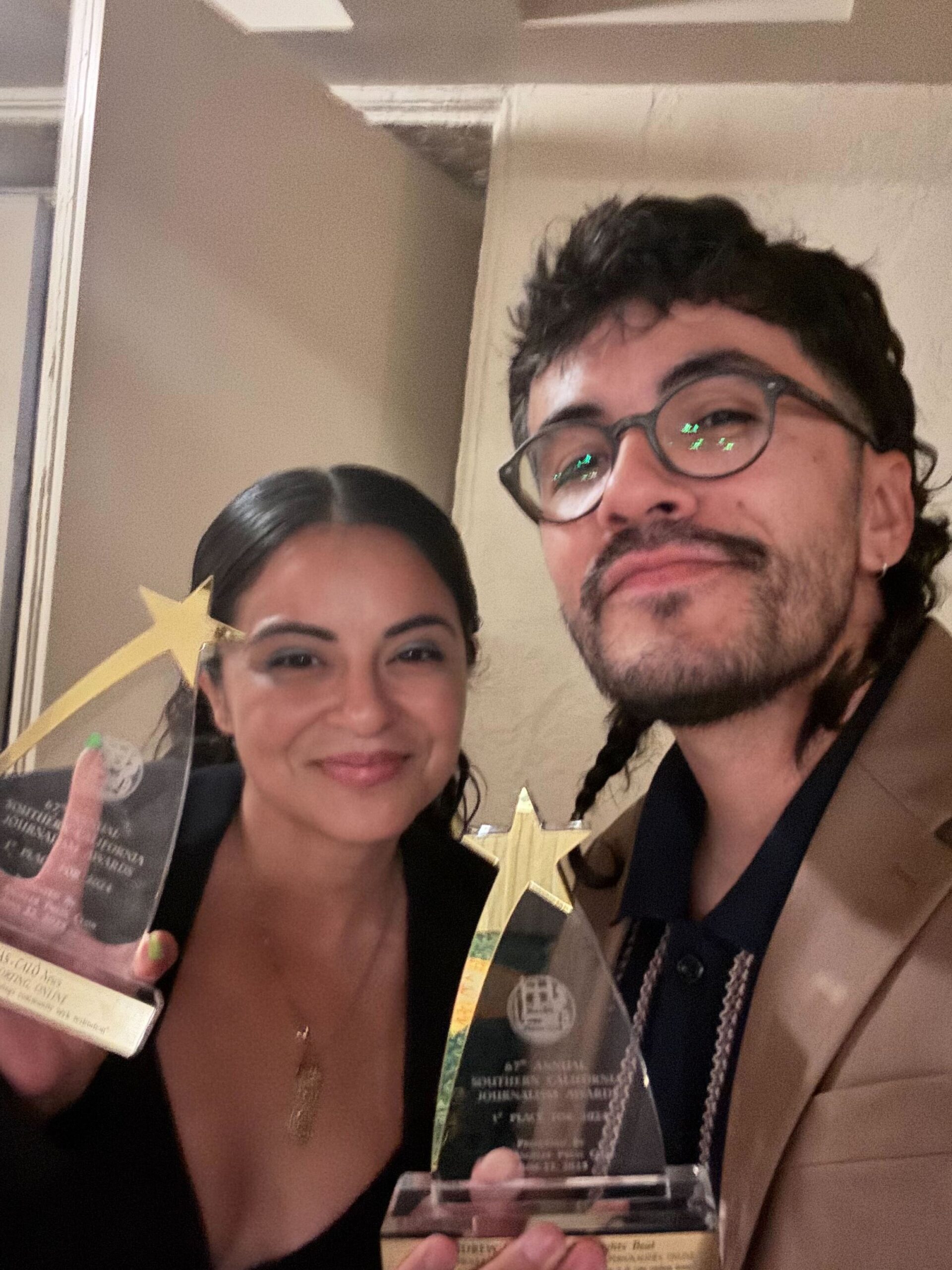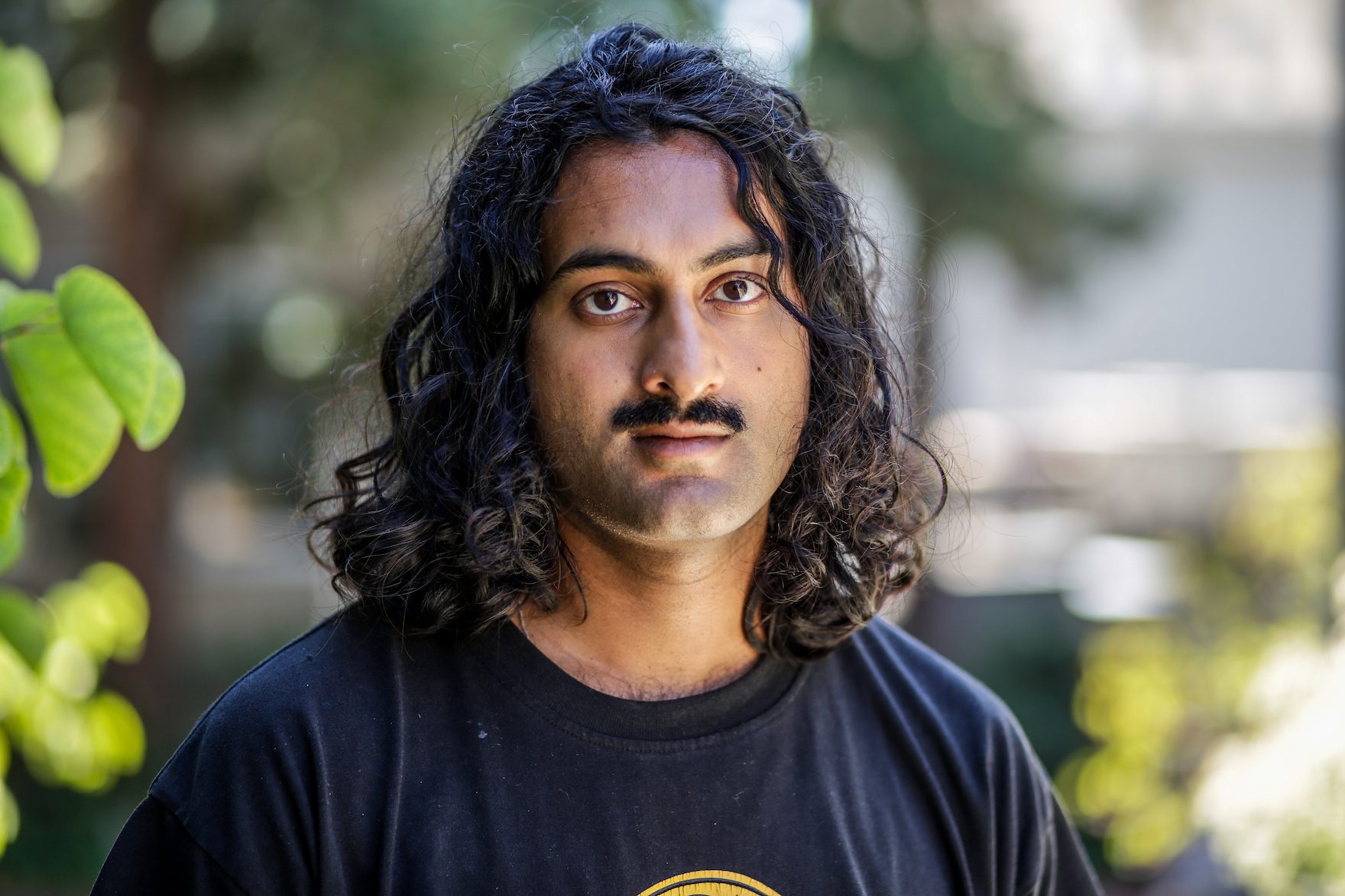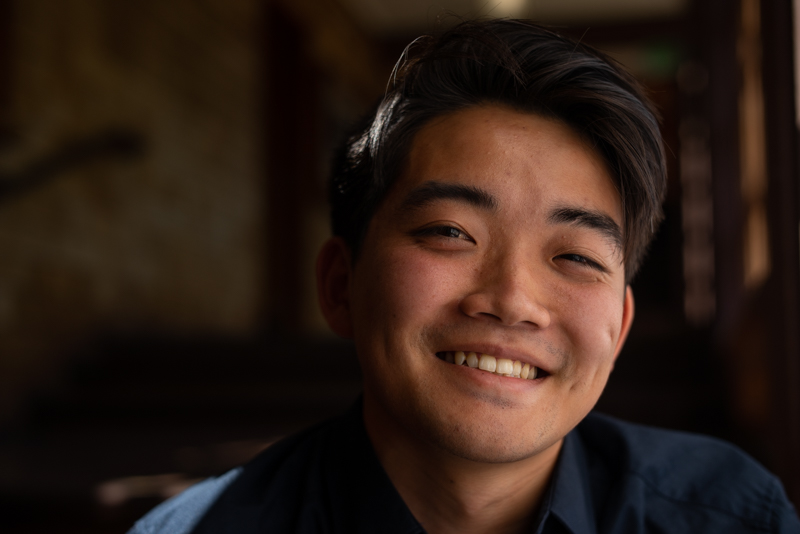As part of California’s pioneering investment in local journalism through the UC Berkeley-based California Local News Fellowship, 38 new early-career journalists have been selected for two-year fellowships in California newsrooms.
Find the selected fellows and newsrooms here.
“Robust local journalism is essential for transparency, accountability and coverage of underrepresented communities,” said Christa Scharfenberg, who has led the program since its inception. “We’ve proven that this state-funded model can and does work.”
The California Local News Fellowship currently has more than 70 early-career journalists reporting from every corner of the state, covering immigration, wildfires, housing, healthcare access, city council and school board meetings, and the effects of Trump administration policies. Fellows are working in 35 counties covering more than 90 percent of the state’s population through community newspapers, local nonprofits, ethnic media outlets and public radio stations. They’re producing more than 100 stories a week that would otherwise go untold.
The 2025 fellows — the third cohort to date — are funded by the state’s first allocation of $25 million, spearheaded by former State Sen. Steve Glazer. California State Sen. Catherine Blakespear and Assemblymember Marc Berman recently led legislative efforts to allocate an additional $15 million to expand the popular program for two more years. The new funding will continue the reporting fellowships and launch new editing fellowships and newsroom leadership and sustainability training led by the Robert C. Maynard Institute for Journalism Education.
Following an intensive orientation at UC Berkeley in early September, the new fellows will live and work for two years in the communities where they are assigned, covering breaking news and reporting enterprise and investigative pieces. In addition to hands-on newsroom experience, fellows receive training and mentorship from the fellowship program in partnership with respected organizations such as the First Amendment Coalition, Big Local, and the Dart Center, and seasoned journalists from across the country.
Fellows and newsrooms are selected through a competitive process led by the fellowship staff and advisory board, with input from journalism faculty at California State University campuses.
New publications set to receive fellows include Los Angeles Public Press, Stocktonia, and News from Native California. News from Native California, led by editor Terria Smith, a tribal member of the Torres Martinez Desert Cahuilla Indians, is the first publication serving indigenous communities to host a fellow.
“Although California has more tribal reservations and representations than any other state in the country, California’s Indigenous Peoples remain one of the most marginalized and least visible populations in the region,” Smith said. “California tribes have significant impacts on economic, environmental, and socio-cultural matters that reach beyond the state’s borders. Thus, it is very important that the public is informed on matters that concern tribal nations.”
The inaugural cohort, which began in September 2023, is set to complete its fellowship this August — marking a milestone for a growing initiative dedicated to strengthening local journalism in California.
Fellow Michelle Zacarias, a member of the first cohort of fellows, will conclude her fellowship at CALÓ News at the end of August. Zacarias placed first in this year’s LA Press Club Awards for Race and Society for her story, “Black and Latino survivors of burned Palm Springs community seek restitution.” She won second place for Commentary for “Latinos are not a monolith: a nuanced picture beyond the polls,” and third place in the Columnist category for her deeply personal column “Sin Pena,” which reflects on her experience navigating cancer twice — first as a child and again as an adult — and on health disparities for Latinos.
Zacarias explained the value of the fellowship opportunity —providing two years of steady employment at a time of rampant newsroom layoffs — for her career: “For a lot of us, this has been the most stable opportunity within our industry right now,” she said.
Zacarias also spoke to the broader impact of the work: “We are on the frontlines of history right now and documenting moments in time that need to be captured.”
Fellows say the experience, while sometimes challenging, has created opportunities for high-impact reporting and laid the groundwork for longer-term journalism jobs.
Fellow Nevin Kallepalli, a reporter for Shasta Scout, said one of the most meaningful stories he’s written in the first year of his fellowship exposed how the Redding Police Department posted photos on social media of people suspected of crimes being arrested. While investigating the practice, Kallepalli found that it violated the intent of a California law prohibiting the posting of mugshots on social media before charges are proven in court.
“It was a very good example of the progress I have made in the fellowship,” Kallepalli said, explaining that it used granular reporting to tell a bigger story about the limitations of the American justice system. “What are our larger rights? What does it mean to be innocent until proven guilty? These are the larger philosophical questions about justice that strike really close to my heart.”
While most fellows in the first cohort are now cycling off and finding new opportunities, some — like Kori Suzuki at KPBS, the public radio and television station in San Diego — are being offered permanent positions in their host newsrooms.
KPBS Investigations Editor David Washburn said Suzuki was “everything we hoped for and more in a fellow.” He said Suzuki expanded the station’s coverage to nearby communities that the station had not consistently covered for 60 years, establishing a new beat.
UC Berkeley Interim Dean Elena Conis said the fellowship has become a bright spot for journalism in California and serves as a model for the nation.
“At UC Berkeley Journalism, we are so grateful to host and shepherd this critical program for local journalism, providing invaluable job opportunities to new journalists while covering underrepresented communities,” Conis said. “Journalism is finally being seen as a public resource we cannot live without — a resource that requires ongoing investment.”
###
For more information about the California Local News Fellowship or to request an interview, contact Berkeley Journalism Communications Director Andrea Lampros at alampros@berkeley.edu or 510.847.4469.




